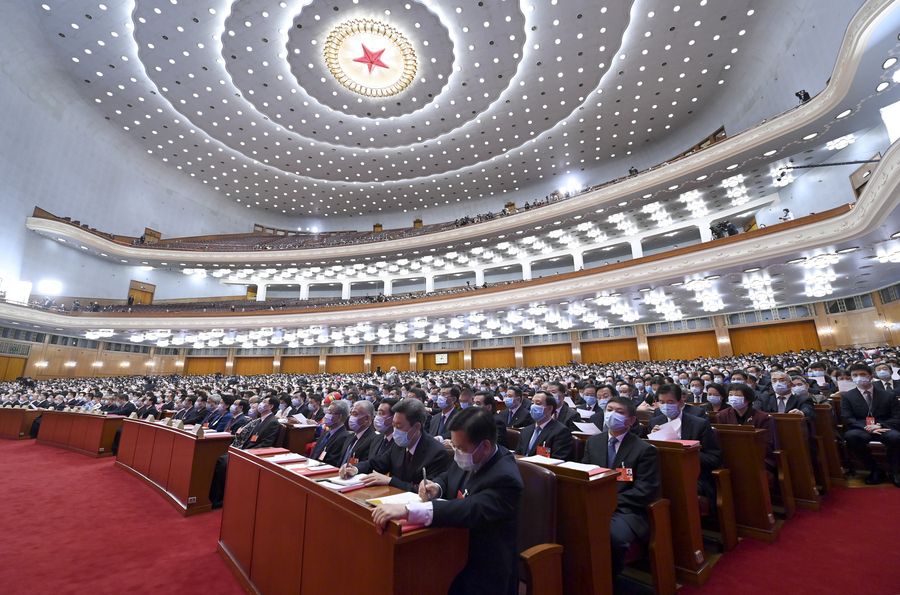As the first law defined as a "code" in the People's Republic of China, the Civil Code has once again demonstrated the country's strive for bettering people's life by rule of law.
Dubbed “an encyclopaedia on social life”, the law governs almost all of an individual's civil activities -- from birth to death, from life to work.
In addition to general provisions and supplementary provisions, the 1,260-article Civil Code has six parts on property, contracts, personality rights, marriage and family, inheritance and tort liabilities.

The closing meeting of the third session of the 13th National People's Congress (NPC) is held at the Great Hall of the People in Beijing, capital of China, May 28, 2020. (Xinhua/Shen Hong)
The law stipulates that all natural persons are equal as regards their capacity for civil rights. Even unborn children are entitled to the rights of inheritance and gifts.
Minors who are victims of sexual abuse or assault can still claim their rights through legal channels when they reach 18.
Data and online virtual assets are also legally protected. In the code, the concept of privacy is more clearly defined. The scope of protected personal information has been expanded to include email addresses and location data.
Families shall establish ethical family principles and maintain integrity. In addition, the Civil Code specifies the scope of marital property and debts.
Regarding environmental damage, the code stipulates that those who harm others due to pollution or ecological destruction shall bear tort liability.
Using the Civil Code to protect 1.4 billion people's rights in every aspect of life will help modernize China's governance system and capacity, as the country is completing building of a moderately prosperous society in all respects.
The legislation also contributes to the global drive to protect people's rights, as the Civil Code provides a legislative reference on how to promote fairness, justice, dignity and each and every person's rights to pursue happiness.
